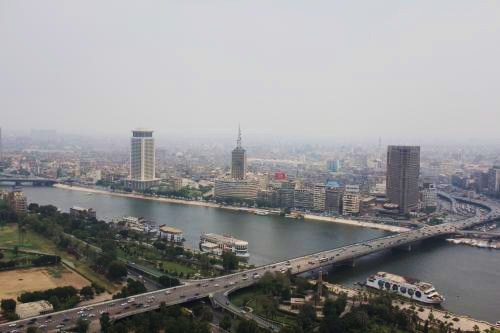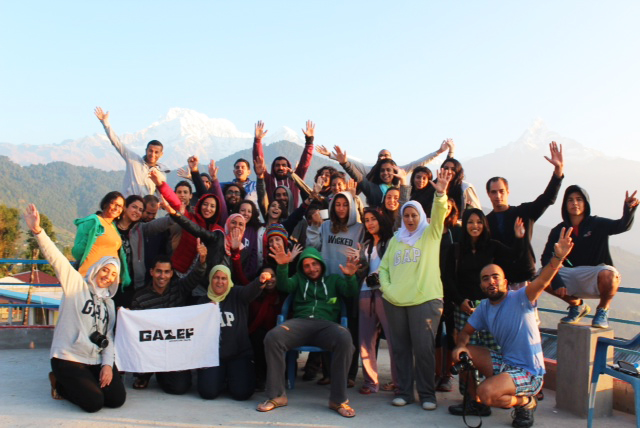Saudi Ambassador returns to Cairo amid controversy
Saudi Arabia’s ambassador returned to Cairo last week signalling an end to a political crisis that was sparked when an Egyptian lawyer was arrested at Jeddah Airport three weeks ago.
Ambassador Ahmed Kattan was recalled a week earlier after protesters converged on the Saudi embassy in Giza and demanded the release of Ahmed El Gizawy.
Some of the protesters carried banners and shouted disparaging remarks against the Saudi King. Egyptian and Saudi media traded barbs for a few days while the Kingdom closed its Cairo embassy, and Alexandria and Suez consulates.
On May 3, a high-level Egyptian delegation led by parliament speaker Saad El Katatney visited Riyadh to “help rebuild ties with the Kingdom,” while senior Egyptian officials in Cairo tried to mend fences.
In his speech to the Egyptian delegation, Saudi King Abdullah said: “the deterioration of the relations between the two brotherly nations hurts every Egyptian and Saudi citizen.”
“Our decision to recall the ambassador and shut down the embassy was to protect its staff from any ominous consequences,” King Abdullah said in his speech.
Most experts believe that any tensions between the two allied nations would be a temporary hiccup.
The Egyptian-Saudi relationship dates to 1926 when both countries signed a “friendship agreement”, followed by a “construction agreement” 13 years later, which provided Egypt with construction contracts in the Kingdom. Ties between the two countries deepened when Saudi Arabia backed Egypt at all international gatherings and organizations regarding the issue of the evacuation of British forces from Egypt; which later led to the signing of a “joint defense agreement” in Cairo on October 27, 1955.
A year after signing that agreement Saudi Arabia offered $100 million in funds to help build the high dam after the United States withdrew its offer to build it.
In 1979, Saudi Arabia joined an Arab League boycott of Egypt and severed ties after late President Anwar Sadat signed a peace treaty with Israel. Relations resumed in 1987.
Sayed Kassem El Masry, former Egyptian ambassador to Saudi Arabia and current advisor to the Organization of the Islamic Conference (OIC), says that ties between the two countries are key to both their foreign policies.
“Saudi Arabia believes that peace in the Middle East in general cannot be maintained without positive relations between the two nations,” El Masry said.
In 1902, King Abdul Aziz Al Saud was quoted as saying “Arabs are in need of Egypt and Egypt is in need of Arabs”. In today’s geopolitical challenges, most experts believe that Saudi Arabia needs Egypt as a possible deterrent to Iran.
While El Masry says the delegation’s visit to Saudi Arabia is a positive effort that helped mend the deteriorating relationships between the two countries, other pundits condemned the visit, saying it was “a humiliation to Egyptians”.
Ahmed El Sisi, a Salafi preacher did not mince words.
“This is an unforgivable act of begging and pleading,” he said in his Friday prayer sermon in Alexandria.
Egyptians on social media shared El Sisi’s anger. When the Egyptian delegation returned to Cairo, many greeted it with the soles of their shoes, an insult in Arab tradition.
Saudi Arabia is a powerful player in the Egyptian economy. Over the years, it has given more than $15 billion in assistance funds, with an undisclosed amount following the Egyptian military’s mobilization during the 1990 Gulf War.
According to Forbes Middle East, Saudi Arabia is the number one investor in Egypt.
In June 2011, as the Egyptian economy first showed signs of faltering, Riyadh pledged $2.7 billion dollars as part of an emergency assistance package. Last week, Riyadh renewed its pledge.
El Masry believes the latest incident would not be an end to the potentially renewable tension between the two countries.
“Of course there has to be problems every now and then. There are about two million Egyptians working in Saudi Arabia right now and this tends to cause problems,” El Masry told The Caravan.
“I’m pretty sure after electing a new president things will change. Some problems will be forgotten and others will arise,” he added.
Two days before the delegation arrived in Riyadh, Saudi media cited a leaked report that Egyptian security had arrested a number of Iranian “infiltrators” who were planning to assassinate the Saudi ambassador in Cairo.
El Gizawy’s fate remains unknown.



